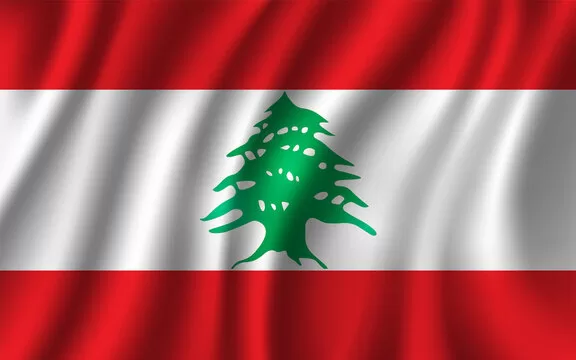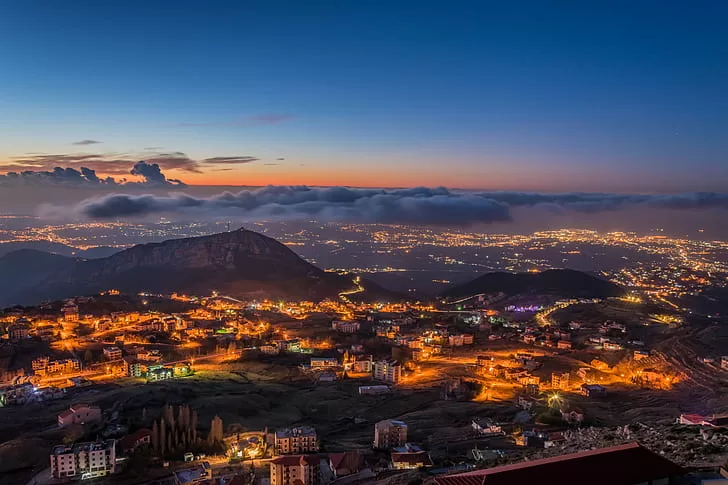Lebanon Country Report

. Lebanon is a country located in the Middle East, bordered by Syria to the north and east, Israel to the south, and the Mediterranean Sea to the west. It is known for its rich history, diverse culture, and vibrant cities. However, Lebanon faces numerous challenges, including political instability, economic crises, and regional conflicts. The country has a complex political system based on power-sharing among different religious groups, which has often led to political gridlock and tensions. Additionally, Lebanon has struggled with economic issues such as high unemployment, public debt, and inflation. Moreover, the country has been affected by the Syrian civil war and the presence of Palestinian refugees, adding to its socio-political and economic challenges. Despite these difficulties, Lebanon remains resilient, with its people striving for stability, prosperity, and peace.
Last updated: March 13, 2023
Security
Lebanon faces significant security challenges stemming from both internal and external factors. Domestically, the country grapples with political tensions, sectarian divisions, and the presence of armed groups. The fragile balance of power among various sectarian communities, coupled with weak governance and corruption, contributes to instability. Additionally, Lebanon has been affected by spillover from the Syrian civil war, including the presence of Syrian refugees and the infiltration of armed groups across its borders. The threat of terrorism remains a concern, with occasional attacks targeting security forces and civilians. Moreover, Lebanon’s southern border with Israel is a source of tension, periodically leading to military skirmishes and cross-border incidents. Despite efforts by Lebanese security forces and international partners to maintain stability, security risks persist, posing challenges to the country’s social cohesion and economic development.
Last updated: July 6, 2023
Infrastructure

Lebanon’s infrastructure has been strained by decades of political instability, conflict, and economic challenges. While the country once boasted modern infrastructure, including roads, ports, and utilities, much of it has deteriorated due to neglect, lack of maintenance, and occasional damage from conflicts. Power outages are common due to the outdated and inefficient electricity grid, and access to clean water is unreliable in many areas. Additionally, the transportation network suffers from congestion and inadequate maintenance, impacting both domestic and international trade.
Lebanon’s ports, particularly the Port of Beirut, play a crucial role in the country’s economy, but they have faced challenges such as inefficiency and corruption. Despite these issues, Lebanon’s infrastructure potential remains significant, and efforts to rebuild and modernize key sectors are underway, albeit hindered by political gridlock, financial constraints, and institutional weaknesses.
Last updated: January 17, 2023
Environment

Lebanon’s environment faces numerous challenges stemming from urbanization, pollution, deforestation, and inadequate waste management. The country’s natural beauty, including its mountains, forests, and coastline, is threatened by these environmental pressures. Air and water pollution levels are high, particularly in urban areas, posing risks to public health and ecosystems. Deforestation and land degradation have also contributed to soil erosion and loss of biodiversity. Moreover, Lebanon is susceptible to natural disasters such as wildfires, landslides, and droughts, exacerbated by climate change. Efforts to address these environmental issues are hampered by political instability, lack of enforcement of environmental regulations, and competing interests in land use. Despite these challenges, there are ongoing initiatives by civil society organizations and government agencies to promote environmental conservation, sustainable development, and climate resilience in Lebanon.
Last updated: March 15, 2022
Health and Medical
Lebanon’s healthcare system faces numerous challenges, including inadequate infrastructure, shortages of medical supplies and personnel, and financial constraints. While Lebanon has a relatively high number of hospitals and medical facilities, access to healthcare services can be limited, particularly in rural and underserved areas. Moreover, the quality of care varies widely, with urban centers offering better-equipped facilities compared to rural regions. The healthcare system has been further strained by the influx of Syrian refugees, placing additional pressure on resources. Additionally, the economic crisis in Lebanon has led to shortages of medications and medical supplies, making it difficult for healthcare providers to adequately treat patients. Despite these challenges, Lebanon’s healthcare professionals work diligently to provide essential medical care to the population, often under difficult circumstances. International aid and support from non-governmental organizations also play a crucial role in addressing healthcare needs in Lebanon.
Last updated: September 6, 2023
Political
Lebanon’s political landscape is complex, characterized by a confessional system that allocates power among various religious sects. The country’s political system is based on a delicate balance of power-sharing, which often leads to political gridlock and sectarian tensions. Political parties in Lebanon are largely divided along sectarian lines, with each sect having its own political representatives and interests. Moreover, Lebanon has experienced periods of political instability, including frequent changes in government and occasional outbreaks of violence. The influence of external actors, regional conflicts, and geopolitical dynamics further complicate Lebanon’s political landscape. Additionally, corruption and patronage networks are pervasive, undermining governance and accountability. Despite these challenges, Lebanon has a vibrant civil society and a tradition of political activism, with citizens frequently taking to the streets to demand change and reform. Overall, Lebanon’s political situation remains fragile, with ongoing efforts needed to address governance issues and promote stability and democracy.
Last updated: July 7, 2023















